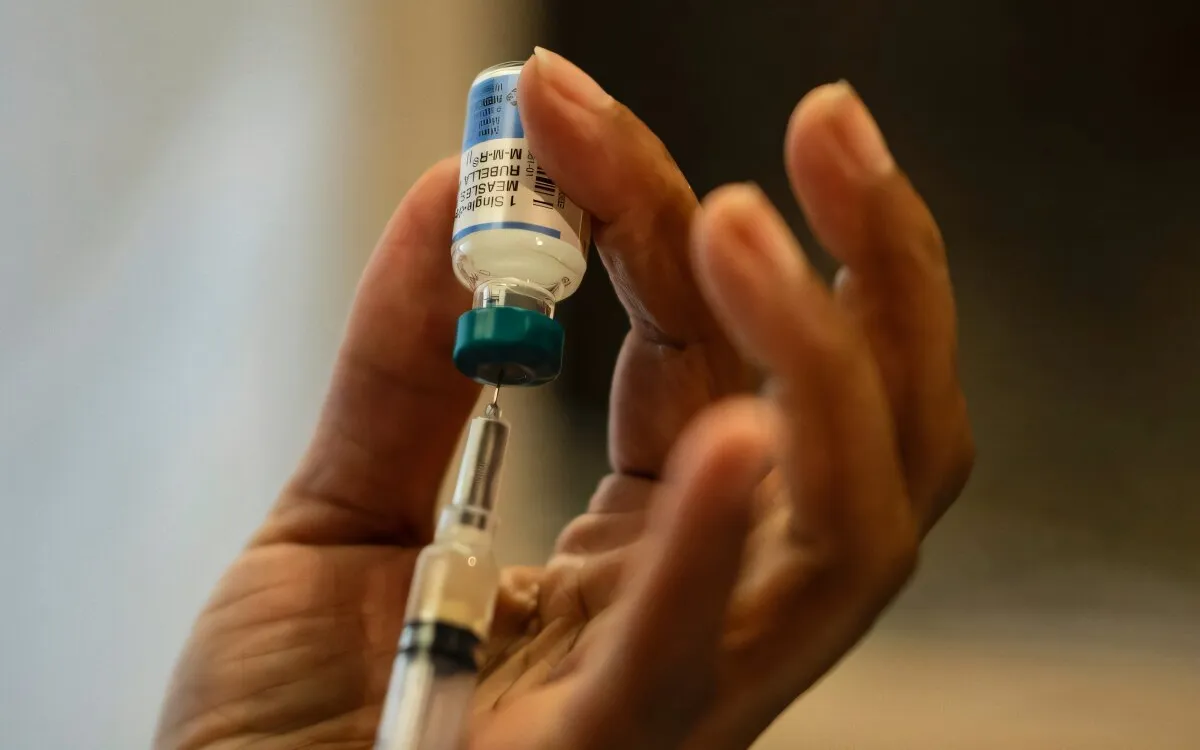
The alarming decline in immunization rates, the resurgence of previously controlled childhood diseases, and the appointment of a vocal vaccine skeptic as Health Secretary have US experts raising concerns about a potential public health crisis. Since the beginning of the year, nearly 100 cases of measles have been reported in Texas and neighboring New Mexico, sparking fears of a comeback of this highly contagious illness.
The rise in measles cases is seen as a significant indicator of declining vaccination rates post-COVID-19 pandemic, as noted by leading pediatrician and immunologist Paul Offit. Amidst growing distrust in health authorities and pharmaceutical companies, more parents are choosing not to vaccinate their children. The percentage of preschool-aged children vaccinated against measles has dropped nationally from 95% in 2019 to less than 93% in 2023, with some regions like Idaho witnessing rates fall below 80%.
Experts warn that this troubling trend may be exacerbated under the leadership of newly appointed Health Secretary Robert Kennedy Jr., known for questioning vaccine safety and spreading misinformation. "It is a disaster waiting to happen, and it will happen," Offit told AFP.
In Louisiana, the resurgence of diseases like whooping cough, which resulted in the deaths of two children, has been linked to vaccine exemptions. According to Jennifer Herricks, a scientist and board member of the nonprofit Louisiana Families for Vaccines, low immunization rates are already giving rise to these diseases. Across the US, parents can opt out of mandatory vaccinations for reasons beyond medical contraindications, including religious and philosophical objections.
The recent measles cases in a Texas county with a large Mennonite population highlight the issue. This mirrors the 2019 measles outbreak among unvaccinated Orthodox Jewish communities in New York and New Jersey.
Mixed messaging about masks, frustration over lockdowns, and COVID vaccine mandates have eroded public trust, according to Richard Hughes, a health policy expert at George Washington University. "We might have done better by just continuing to encourage people to be vaccinated than requiring it," Hughes added.
Amidst a flood of misinformation, vaccinations have become a contentious issue in America's culture wars. Lawmakers nationwide are introducing bills to either enforce or limit vaccine mandates and expand exemptions. Herricks notes that the number of these bills has more than doubled compared to pre-COVID levels.
Significant changes, such as Montana's decision to halt vaccination statistics and Louisiana's cessation of vaccine promotion, signify the growing marginalization of immunization—a practice once central to public health policy.
According to Offit, the US may soon face the harsh reality of declining vaccination rates. Before the introduction of the measles vaccine in 1963, the disease affected an estimated three to four million Americans annually, killing hundreds. It was declared eliminated in the US by 2000 thanks to widespread immunization. "People don't realize how sick and dead that virus can make you," Offit warned.
As the debate over vaccination policy intensifies, the potential public health risks cannot be ignored.
© 2025 AFP